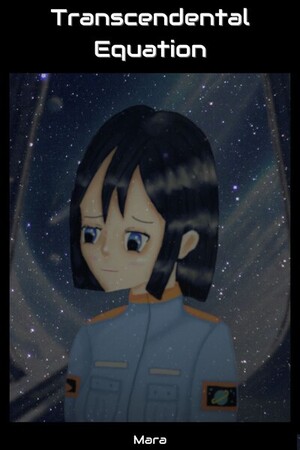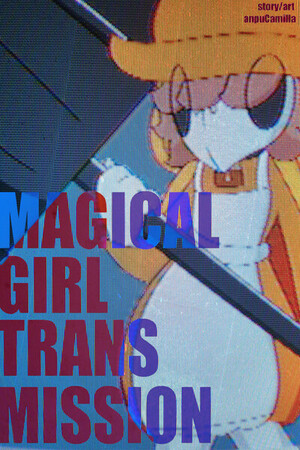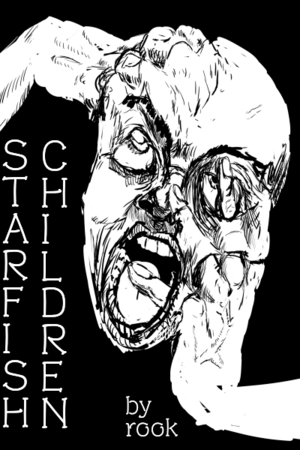Chapter 3:
Echoes of the Past
The Mirror’s Soul
Isao pulled his haori tighter around himself as he walked up the narrow street of Gion under a fine drizzle. The humid air carried the scent of warm sake and roasted tea, enveloping the district in a nostalgic haze. Muffled laughter and the distant melodies of shamisens intertwined with the delicate sound of raindrops against his umbrella. The red lanterns hanging from the fronts of traditional shops cast trembling halos upon the glistening cobblestones. He had no trouble finding the tiny antique shop where he had discovered the Victorian mirror just a few days earlier. The bell tinkled softly as he pushed open the door.
The scent of polished wood and incense greeted him, awakening his senses to the magic of the place. At the back of the shop, seated behind a dark wooden counter, the old antique dealer looked up from her book. Her wrinkles deepened when she recognized Isao.
"I was wondering when you’d return," she said, closing her leather-bound book. "It was only a matter of time. Has the mirror… spoken to you?"
Isao hesitated before stepping forward. He hadn’t come for ghost stories but to understand, to uncover facts, tangible information.
"I’d like to know more about its origin, its history," he declared, clutching an envelope in his satchel — an envelope containing one of the strange photographs he had developed.
The antique dealer nodded as if she had expected this. She rose with deliberate slowness and disappeared behind a screen decorated with flying cranes. Isao heard the sound of a drawer opening, then the rustling of papers. She returned with a black lacquered box adorned with golden patterns, which she placed delicately on the counter.
"The mirror is said to have belonged to the painter Adrien Rousseau," she began as she lifted the lid. "It was sold at auction in Paris after a scandal that shook high society in 1845."
She pulled out several yellowed newspaper clippings, preserved under sheets of tissue paper. Isao leaned in to get a better look. The texts were in French, a language he did not master, but the engraved illustrations immediately captured his keen gaze. One of them depicted a strikingly beautiful young woman dressed in a crinoline gown, holding a fan in her hand.
"Lucille Morel," the antique dealer murmured, brushing the image with her fingertips. "An aristocrat who posed for artists of the time. Highly admired for her unique beauty."
Isao’s legs faltered. He pulled the glass plate from the envelope and placed it next to the aged newspaper engraving. The resemblance was undeniable.
"What happened to her?" he asked, his throat tightening.
The antique dealer sighed, a sound that seemed to emerge from the depths of time.
"She disappeared. One evening in November 1845, after posing for the painter Adrien Rousseau." She pointed to another article. "A case that caused a great stir at the time. The entire Parisian police force was mobilized, but her body was never found."
A knot formed in Isao’s stomach.
"This painter, Adrien Rousseau… what is known about him?"
The old woman narrowed her eyes, as if searching through her memory.
"A promising artist, they say. But he was said to be consumed by a pathological jealousy." She rummaged through her box again and pulled out another clipping. "Here. He was interrogated for weeks but was never charged. Lack of evidence."
Isao examined the image. Adrien Rousseau’s face was that of a handsome man with fine features, but his gaze held something tormented, almost feverish. He tried to imagine this man holding a brush, capturing Lucille’s beauty on canvas, and then…
"Are there any other accounts of what might have happened to her?"
The antique dealer hesitated, then pulled out one last, smaller clipping.
"Rumors circulated," she said in a hushed voice. "Adrien Rousseau was allegedly seen in the company of members of a secret society operating in the catacombs of Paris. Neighbors claimed to have heard incantations, pleas, and screams tearing through the night of the supposed tragedy. People spoke of an occult ritual."
"According to sources close to the investigation, esoteric symbols surrounding this mirror were found in Rousseau’s studio, along with a treatise on European pagan occult arts." She translated a paragraph from the article for him.
Isao felt his pulse quicken. The glass plate he held between his fingers suddenly seemed heavier, as if burdened with a history he was only beginning to comprehend.
"How did this mirror travel through time to end up in your shop?" he asked, unable to tear his gaze from the yellowed images.
The antique dealer gently closed the lacquered box.
"Objects travel, just like souls," she replied enigmatically. "It changed hands many times. A French friend sold it to me over forty years ago."
A silence settled between them, punctuated by the delicate patter of rain against the shop windows. Isao thought of the glass plates he had developed, of the silhouette of the young woman becoming clearer with each attempt, as if she were trying to break through a temporal mist to reach him.
"May I…" Isao hesitated. "May I make copies of these documents?"
The old woman observed him for a long moment before nodding.
"Take them," she finally said. "They belong to you now, just like the mirror."
Isao thanked her and carefully slipped the documents into his satchel. As he was about to leave, the antique dealer placed a wrinkled hand on his arm.
"One last piece of advice, photographer," she murmured. "Never forget that seeing is not the same as looking. And sometimes, it is the images that watch us, not the other way around."
With those enigmatic words, she gave him a slight bow and disappeared once more behind the screen.
The journey back felt longer than the way there. The newspaper articles in his satchel seemed to radiate a strange energy, as if they contained not ink and paper, but fragments of life suspended in time.
The rain intensified, forming translucent curtains that turned the city lights into diffuse halos. Isao couldn’t help but see in this spectacle a metaphor for his situation: reality itself seemed to be dissolving, revealing layers of truth previously invisible.
Arriving at his studio, he was greeted by the silvered reflection of the Victorian mirror. He pulled out the newspaper clippings and spread them across his worktable, next to his photographic plates. A strange feeling washed over him, as if two eras were colliding within the confined space of his studio.
He stared at the engraving of Lucille Morel. The delicate features, the expressive eyes — they were the same as the woman appearing in his wet collodion photographs. A woman who had been missing for nearly two centuries.
"What happened to you, Lucille?" he murmured at the image.
He turned toward the Victorian mirror, as if it might offer him an answer. Its surface seemed darker that night, deeper, as if opening onto another space and time. A shiver ran through Isao — not of fear, but of an eerie premonition, the sense of standing at the crossroads of unseen paths.
Something in the studio’s atmosphere had changed. The air felt heavier, charged with electricity and possibilities. The lamplight cast elongated, almost living shadows upon the walls. And in the mirror’s reflection, fleeting images seemed to form and dissolve — perhaps reflections of the rain outside, or perhaps echoes from another time…
Isao ran a weary hand over his face. He now knew part of the story, but so many questions remained unanswered. Who was Adrien Rousseau, really? What ritual had he performed on that fateful night in 1845? And why was he, Isao Tanaka, a Kyoto-based photographer born a hundred and fifty years after those events, now entangled in this story?
He stepped closer to the mirror, examining its carved frame, its delicate ornaments. Was it possible that occult symbols were hidden within, invisible to the naked eye? That this simple object had served as a gateway between two worlds, two eras?
The weight of his discovery, defying all logic, suddenly pressed upon him. This was no longer just an artistic or technical curiosity. There was, perhaps, a suffering soul, an unfinished story waiting to be resolved for nearly two centuries.
He brushed his fingertips against the mirror’s cold surface. For the first time, he felt as though the mirror reacted to his touch — an almost imperceptible vibration, like a distant pulse. It seemed to breathe, absorbing his breath, ready to reveal an ancient secret.
Outside, the rain intensified, hammering against the workshop’s windows. And in the mirror’s reflection, for a fleeting moment, Isao thought he saw a face that was not his own — a face with eyes shining with unfathomable sorrow. Yet behind that melancholy, he thought he perceived a fragile glimmer of hope — a silent plea he could not ignore. Was it a memory from the past, or a consciousness awakening through time?




Please sign in to leave a comment.